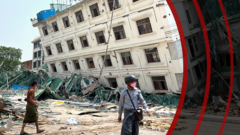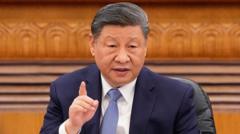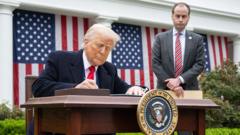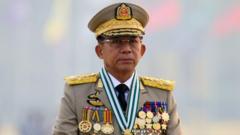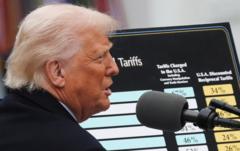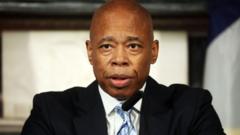In light of international aid efforts from China and Russia, U.S. senators urge for enhanced response measures from the Trump administration.
Senators Criticize U.S. Aid Shortcomings in Myanmar Earthquake Response

Senators Criticize U.S. Aid Shortcomings in Myanmar Earthquake Response
Democratic lawmakers express concern over the lack of U.S. humanitarian assistance following a devastating earthquake in Myanmar.
In the aftermath of a catastrophic earthquake in Myanmar that claimed over 2,700 lives, several Democratic senators have publicly condemned the U.S. government’s inadequate humanitarian response. A letter organized by Senator Chris Coons, a member of the Foreign Relations Committee, has called on the Trump administration to reassess its aid strategy, which has been heavily influenced by cuts to foreign aid and a reduction in the role of the United States Agency for International Development (USAID).
The letter highlights concerns that the U.S. failure to act promptly may damage perceptions of American reliability compared to nations like China and Russia, which have responded by deploying rescue teams and delivering essential supplies. The senators argue that this oversight represents a significant ethical and strategic failure, reflecting poorly on America's commitment to humanitarian efforts worldwide.
Secretary of State Marco Rubio and Treasury Secretary Scott Bessent have been pointed out for their roles in the reduction of foreign aid. The letter suggests the U.S. should consider issuing sanctions waivers, allowing aid to flow into Myanmar without the hindrance of regulatory restrictions imposed on the region. As the country grapples with the aftermath of the earthquake, neighboring countries including Thailand, Malaysia, and India have also mobilized support.
With growing calls from within the Senate, there is increasing pressure for the Trump administration to bolster its response to international crises, particularly when immediate needs arise post-disaster. As the situation in Myanmar unfolds, the outcome of this humanitarian plight may serve as a litmus test for U.S. foreign policy under the current administration.
The letter highlights concerns that the U.S. failure to act promptly may damage perceptions of American reliability compared to nations like China and Russia, which have responded by deploying rescue teams and delivering essential supplies. The senators argue that this oversight represents a significant ethical and strategic failure, reflecting poorly on America's commitment to humanitarian efforts worldwide.
Secretary of State Marco Rubio and Treasury Secretary Scott Bessent have been pointed out for their roles in the reduction of foreign aid. The letter suggests the U.S. should consider issuing sanctions waivers, allowing aid to flow into Myanmar without the hindrance of regulatory restrictions imposed on the region. As the country grapples with the aftermath of the earthquake, neighboring countries including Thailand, Malaysia, and India have also mobilized support.
With growing calls from within the Senate, there is increasing pressure for the Trump administration to bolster its response to international crises, particularly when immediate needs arise post-disaster. As the situation in Myanmar unfolds, the outcome of this humanitarian plight may serve as a litmus test for U.S. foreign policy under the current administration.

